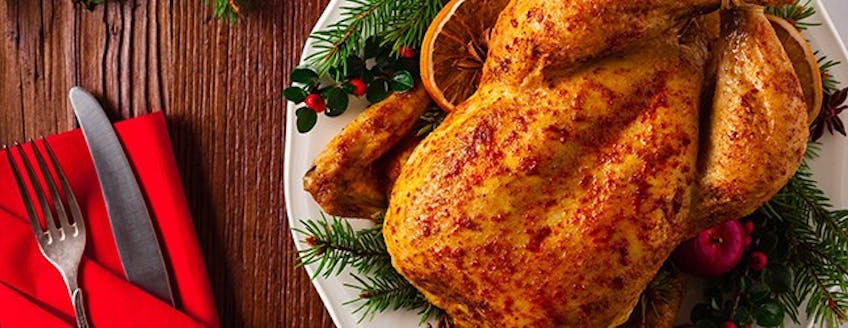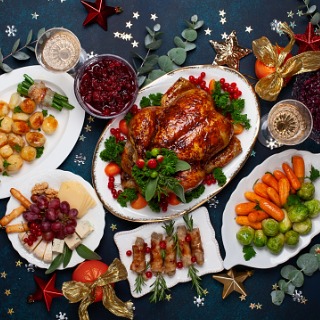It's the most, wonderful time of the year
While you’re still in your festive pyjamas considering which wonderful Christmas treats to tuck into first, take a look at the following Christmas foody facts.
Breakfast is Key
Many ponder whether they should have breakfast on Christmas morning or save the calories so they can indulge in extra portions of roast potatoes or servings of turkey at Christmas lunch.
One of the largest studies of its kind, analysing the eating habits of over 50,000 adults, has shown that one of the key factors associated with a decrease Body Mass Index is eating breakfast. It was reported that those that eat breakfast are generally more likely to feel satisfied and to therefore take on fewer calories throughout the day.
The Mystery of the Stocking Tangerine
Ever wonder why we traditionally put tangerines in stockings? Although there are 3 or 4 proposed explanations and no one knows for sure, we at Maximuscle think this one makes the most sense - The tradition comes from 12th century French nuns who were inspired by the legend of St Nicholas who gave gold to the poor, left socks full of fruit, nuts and tangerines at the houses of the needy because they were rare and nutritious.
Christmas Snacking
A high proportion of the excess calories we eat over the Christmas period will come from fat laden snacking food. With fat packing a whopping 9 calories per gram, compared to 4 calories per gram for carbohydrates and protein, foods high in fat should be consumed sparingly.
Calorie Toll of Christmas
The average adult consumes anywhere between 5000 – 7000 calories over Christmas day, which is double or even triple the estimated daily calorie requirements. As it roughly takes an excess of 7000 calories to add 1kg to the scales, a deficit of 500 calories per day, with increased exercise or decreased food intake, for 2 weeks should eliminate this 1kg body weight. Although Christmas day is a time to have fun and be merry, it’s worth noting what future price you will have to pay to work off this calorie toll.
Turkey Mahem
A mammoth 10 million turkeys are cooked in the UK every Christmas.
A Sobering Christmas Idea?
It’s not only the excessive food intake on Christmas day that can affect your temple of a body, but alcohol consumption can also have undesired affects. A large glass of red wine can equate to about 160 calories, champagne has roughly 89 calories in a 125ml glass and beer contains about 215 calories per pint. It’s worth considering how much empty calories you tally up throughout the day.
More the Merrier
It has been shown that the size of our meals tend to be significantly larger as the number of people we eat with increases. Meals eaten with one other person present were 33% larger than meals eaten alone, whereas when there are six people present we eat 72% more, and 96% more if there are seven or more people present respectively. But, although we may eat more at Christmas given the generally larger presence at the dinner table, it’s Christmas, a time for family and friends.
Who’s Doing the Washing-up?
In Somerset, it’s traditional for the last person to finish eating their sprouts to do the Christmas Day washing up dressed as a turkey. It’s thought that this tradition started in the 1960s as a way to encourage children to eat the vegetables.


















